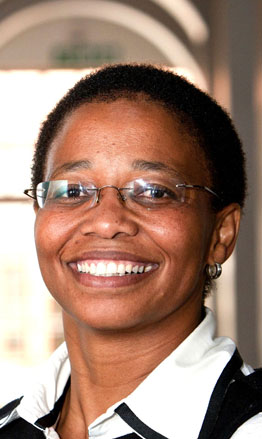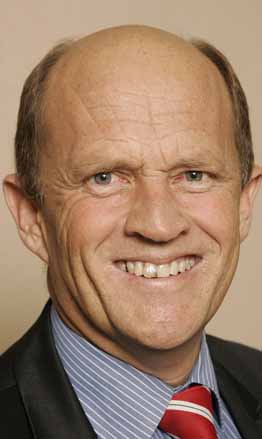  |
|
Dr Choice Makhetha and Prof. Hendri Kroukamp
13 March 2012
|
We are delighted to announce the appointment of Dr Choice Makhetha as Vice-Rector: External Relations, and Prof. Hendri Kroukamp as Dean of the Faculty of Economic and Management Sciences.
Both appointments were approved on Friday 9 March 2012 by the UFS Council during its quarterly meeting at the Bloemfontein Campus.
“Dr Makhetha is an experienced administrator in higher education and has spent time shadowing the Presidents of Harvard and Spelman Universities in the USA, where she gained invaluable experience in positioning universities for world-class impact,” said Prof. Jonathan Jansen, Vice-Chancellor and Rector of the UFS.
Her portfolio will entail external linkages, partnerships and strategic alliances of the university with national and international stakeholders.
Previously, Dr Makhetha was the Special Assistant to the Vice-Chancellor. Before that she was acting Dean: Student Affairs, also at the UFS. She has served as acting Vice-Rector: External Relations since February 2011.
Dr Makhetha obtained a Master’s degree in Political Science from the UFS in 2000 and a Ph.D., also in Political Science, in 2003. She was named the UFS’s Dux student for 1998/99. Dr Makhetha has received many awards for her work and she serves on various boards and committees in South Africa and abroad.
In 2010 and 2011 she was a fellow at Harvard University and Spelman College as part of Higher Education South Africa (HESA)’s Higher Education Leadership and Management programme.
“Prof. Kroukamp is a distinguished academic in the field of Public Administration and a highly experienced manager and leader of academic departments. He has been serving as acting Dean of his faculty since September 2010,” said Prof. Jansen.
Prof. Kroukamp holds a B.A. (Hons.) degree in Public Administration from Stellenbosch University and an M.A. degree from the University of Port Elizabeth (UPE). In 1993 he obtained a qualification in Project Management from the World Bank. He completed a D.Phil. in Public Administration at UPE in 1996, where he was a lecturer. Prof. Kroukamp joined the UFS in 1999 as a professor and Chairperson of the Department of Public Management.
He is the referee of various national and international publications, serves on various publication boards and is a member of various national and international boards and committees.
Prof. Kroukamp, who is a National Research Foundation (NRF)-rated researcher, has received many NRF awards. Amongst these are NRF Overseas International Conference Awards in Turkey, Korea, Poland and France. He has also received a UFS Top Research Award in the Faculty of Economic and Management Sciences.
Both appointments apply retrospectively on 1 March 2012.
Media Release
13 March 2012
Issued by: Lacea Loader
Director: Strategic Communication
Tel: +27(0)51 401 2584
Cell: +27(0)83 645 2454
E-mail:
news@ufs.ac.za